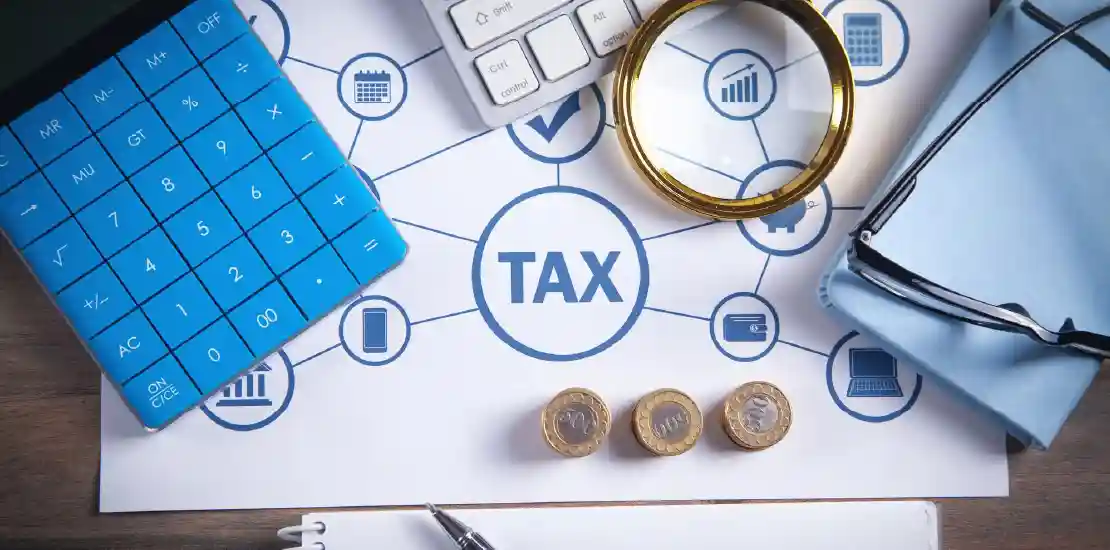The recent notices from the income tax department on employers in the southern
states of India may be a matter of concern for employers. The notices are informatory in nature, intimating the employers about high refunds claimed by employees vis-à-vis TDS deducted, the probability of false deductions/exemptions claimed and requesting the employers to advise employees to file revised, updated tax returns in such cases.
Such notices are a major cause of concern for corporates. In simple words, if the
employee has claimed false deductions/exemptions, the department may come
knocking the doors of the employer.
Employees generally claim deductions for house rent allowance (HRA), leave travel allowance (LTA), PF/PPF payments, tuition fees, health insurance/medical bills etc. It is likely that employees may submit inflated amounts or false bills to the employer to claim deductions.
In this blog, the author has enumerated the recent developments w.r.t such claims by employees, the provisions of the law and more importantly, the impact of such
false claims on the employer.
Communiques from the department
Recently, the tax department has issued communiques to companies/employers responsible for tax deduction on payment of salaries. Broadly, these letters provide that:
1. Many employees in the states of Telangana and Andhra Pradesh 1 have been claiming refund of TDS on salaries by filing false income tax returns with exaggerated claims of deductions/exemptions. Such claims were being verified by the department.
2. The department urges that the employers may advise their employees:
a. To verify the correctness of their claims for past 3 assessment years (AYs) and voluntarily file a revised, belated or updated tax returns, as applicable; and
b. About the consequences of misreporting income (interest, penalty and additional tax payable).
Legal Provisions
The Income tax Act, 1961 (the Act) casts a responsibility on the
employer/deductor to procure evidence from the employee and on the employee to provide evidence to the employer/deductor. The relevant provisions are as follows:
1. Section 192(2D) reads as follows:
“The person responsible for making the payment referred to in sub-section
(1) shall, for the purposes of estimating income of the assessee or computing tax deductible under sub-section (1), obtain from the assessee the evidence or proof or particulars of prescribed claims (including claim for set-off of loss) under the provisions of the Act in such form and manner as may be prescribed.”
2. Rule 26C of the Income tax Rules, 1962 provides the assessee shall furnish to the person responsible for making payment section 192(1), the evidence or the particulars of the claims referred to in sub-rule (2), in Form No.12BB for the purpose of estimating his income or computing the tax deduction at source.
3. Circular 24/2022 dated 7 th December 2022 para 8 reads as follows:
“section 192(2D) provides that person responsible for paying (DDOs) shall obtain from the assessee evidence or proof or particular of claims such as House rent Allowance (where aggregate annual rent exceeds one lakh rupees); Leave Travel Concession or Assistance; Deduction of interest under the head Income from house property and deduction under Chapter VI-A as per the prescribed Form 12BB laid down by Rule 26C of the Rules.”
Thus, it is amply clear that the employer is responsible for collecting the requisite evidence for claims made by an employee, verify them to its satisfaction and thereafter, computed the TDS liability.
Matters of concern for employers
Although the department’s communiques to the employers sound soft or advisory in the nature, the future ones may not be so. Let’s look into some of the areas of concern for the employers.
1. The notices currently being issued may pertain to past AYs – 2023-24, 2022- 23 and 2021-22. The employers may proactively educate their employees about restrictions on claiming deductions under the Act, the monetary limits, the possibility of correcting errors, if any, by filing revised or updated tax returns.
For instance, employees may erroneously claim deduction under section 80D for medical expenses of parents up to Rs. 50,000, despite the fact that there is a health insurance in place for their parents. In such cases, employees may genuinely not be aware of the tax provisions and may be willing to file the correct tax return.There is a possibility that the department may issue a notice to the employer for wrongful deductions claimed by the employee and consequent lower deduction of TDS. In that case, the employer may be considered as an assessee in default under section 201 of the Act. The employer may however, take support of decisions 2 where courts have held that if the employer deducted lower TDS under a bona fide belief, it cannot be considered as an assessee in default under section 201. In certain decisions 3 however, the courts have upheld the applicability of section 201 even where the assessee had a bona fide impression for non-deduction of TDS.
2. India is gradually moving to a low/nil deduction tax regime for individuals. In that case, this issue may not be relevant for many employees opting for the default tax regime with almost NIL deductions for AY 2024-25 and onward.
However, the employer may be held responsible in certain cases, viz.
a. Where an employee claims deduction of interest or set-off of losses under the head ‘income from house property’;
b. Where employees exercise stock options or similar rights and TDS is deducted based on the valuation of shares of the company; or
c. Where residential status of inbound and outbound expatriates changes in the years of transition.
In such cases, it is imperative for the employer to procure and maintain relevant documentary evidence to justify its stand on deduction of TDS.
3. Practically, most employees may not understand taxation and the requirement to maintain/submit proofs for claiming deductions. It is the responsibility of the finance team of the employer to ensure that employees are allowed deductions only after they have submitted the relevant proofs of deductions/set-off of losses. The finance team as well as the employees must be educated about the requirements to maintain adequate proofs and evidence for claiming deductions. As it is rightly said, ignorance of law is not an excuse.
Conclusion
The onus of accurate tax computation and tax deduction on employee’s salary is cast on the employer. Hence, it is incumbent upon the employer to put in place the requisite infrastructure for collecting, verifying and maintaining records or documents to justify the claims/deductions of the employee and finally deduct the right amount of TDS.



